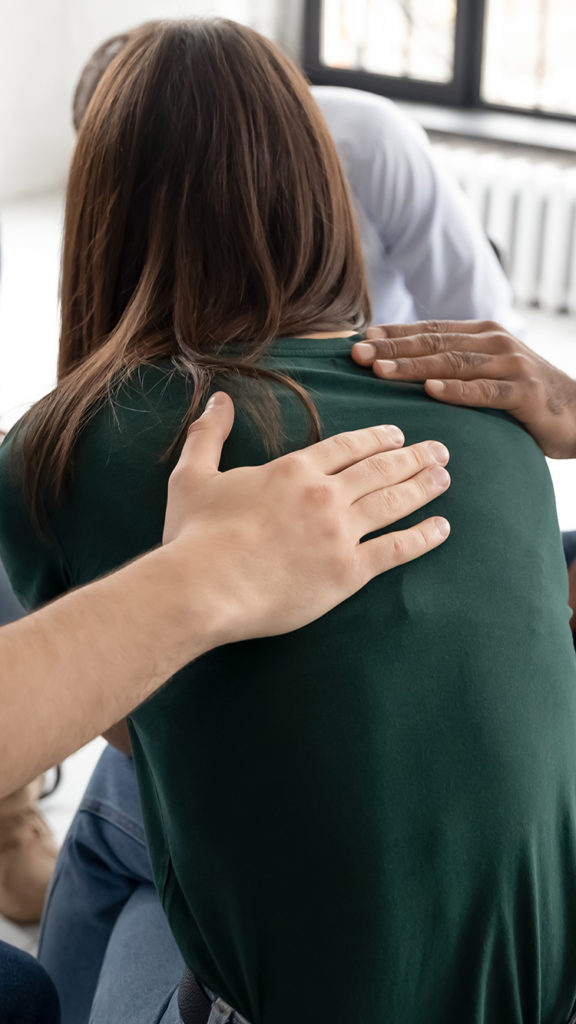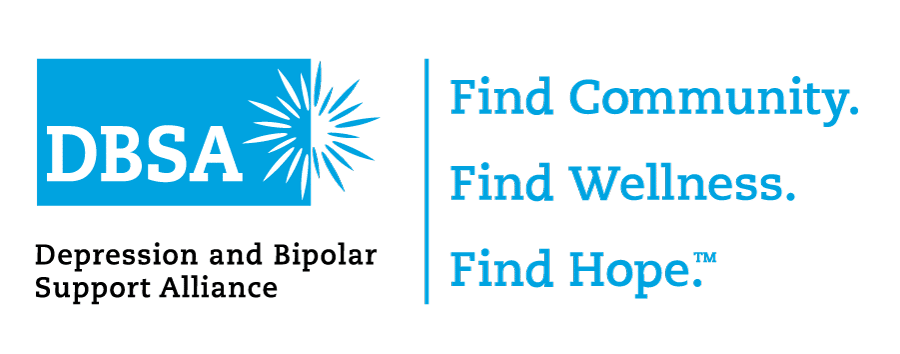Suicide is one of the leading causes of death in the United States. For people living with depression and bipolar, thoughts of suicide can be common, yet frightening. In this resource hub, you’ll find information to help manage thoughts of suicide, resources to create a crisis plan, and information on identifying signs and symptoms in others.
Suicide Prevention Awareness Month

Parent and Caregiver Guide
Tips for starting conversations, recognizing signs, taking action at home, and what to expect when seeking help.
Understanding Hospitalization for Mental Health
If you’re experiencing severe symptoms of depression or bipolar disorder, a short hospital stay may help you stabilize. This guide offers practical advice for individuals and families.
Find a Peer Support Group
Peer support boosts hope, wellness, and connection—while helping reduce suicidal thoughts. DBSA offers in-person, online, and identity-focused groups where people can share experiences and build community. Find a group today.
Supporting Survivors of Suicide Loss
Coping with the loss of a loved one is challenging, and it can be difficult to know how to best support someone who has lost a loved one to suicide. In this episode of the DBSA podcast series, two DBSA Young Adult Council Members interview co-facilitators of a Survivors of Suicide bereavement support group.
Through DBSA, Cy Found a Reason to Live
DBSA was there during one of the most turbulent times of my life—that saved me.
After a suicide attempt left me in the hospital, the progress I made on my mental health was pretty superficial for a couple of months. I stumbled upon DBSA Louisville by happenstance, and after a few support group meetings, I started to develop my own sense of a reason to live.
One of our DBSA Louisville chapter members, who found DBSA around the same time as me, likes to point out to newcomers that when I started joining support group meetings, I was in crisis pretty frequently. Now, though, I am happier and even lead meetings myself.
I want to share my story for the same reason I do in support groups—if it could help even one person, it’s worth it. I’ve never felt more welcome in my life than in these support groups.
It has absolutely been a long and often arduous journey, but I wouldn’t have made it nearly as far without peer support and DBSA Louisville—I truly owe my life to that chapter.
–Cy
 Cy is the current Vice President of DBSA Louisville. They care deeply about the DBSA community, as their recovery has made a drastic improvement since joining, and they believe it truly feels like a second family. They first attended a meeting three and a half years ago, and were facilitating within six months. They were voted onto the Board of Directors in their second year as Secretary, they helped launch the LGBTQ+ Identity Focused group in June of 2024, they launched a bi-monthly LGBTQ+ Zoom group in response to DBSA CEO Michael Pollock’s “Mental Health Emergency” email, and they volunteer to staff tables, whenever possible, at events ranging from NAMI’s annual fundraiser walk to Anime-Fest Louisville. Sometime in 2026, they plan to resume working on their undergrad to pursue a Religious Studies PhD with a focus on how queer and disabled people find homes in esoteric practices both in history and the modern era.
Cy is the current Vice President of DBSA Louisville. They care deeply about the DBSA community, as their recovery has made a drastic improvement since joining, and they believe it truly feels like a second family. They first attended a meeting three and a half years ago, and were facilitating within six months. They were voted onto the Board of Directors in their second year as Secretary, they helped launch the LGBTQ+ Identity Focused group in June of 2024, they launched a bi-monthly LGBTQ+ Zoom group in response to DBSA CEO Michael Pollock’s “Mental Health Emergency” email, and they volunteer to staff tables, whenever possible, at events ranging from NAMI’s annual fundraiser walk to Anime-Fest Louisville. Sometime in 2026, they plan to resume working on their undergrad to pursue a Religious Studies PhD with a focus on how queer and disabled people find homes in esoteric practices both in history and the modern era.
Conversation about Suicide and Mood Disorders
Hear powerful stories from parents and caregivers, and learn how families, clinicians, and DBSA can work together to provide compassionate support and a path to hope.
Highlighted Questions
- What is the intersection between bipolar disorder and the increased risk of suicide? Watch now
- What mood disorder or suicide prevention resources do you recommend to your patients? What resources do your patients report back to you are the most helpful? Watch now
- What do you recommend to parents or caregivers in support groups when they discuss or have concerns about suicidality in their children? Watch now
- What are some warning signs that a person may be experiencing thoughts of suicide? What are the next steps that the person or someone close to them should take? Watch now
- What is one thing that you want, either someone with a mood disorder or a parent or caregiver, to know that you wish you knew before? Watch now
Discussion on Suicidal Thinking
Emma Benoit was paralyzed by a suicide attempt but used her painful experience to spread hope and awareness. DBSA hosted a panel of peers and subject matter experts who shared stories and resources to help teens, their parents, and loved ones better understand suicidal thinking and mood disorders.
Unpacking Mental Health with a Community
“When I started joining DBSA support groups, it was like they were taking the boxes from the shelves on my behalf. Someone would tell a story and one of my own boxes was labeled with exactly what they were talking about. It helped me start to unpack by just listening.”
Neville faced mental health challenges due to childhood bullying and domestic violence. After his sister’s death, he hit a crisis point and contemplated suicide. In search of help, he discovered the Depression and Bipolar Support Alliance (DBSA) and joined online support groups. Listening to others helped him unpack his emotions, regain confidence, and improve his relationship with his parents. He now emphasizes the value of community and encourages others to seek support without fear of judgment.
You Can Help
With your support, we can continue to offer our lifesaving services to our community to stop the rate of suicide from increasing to foster connection, wellness, and hope.



